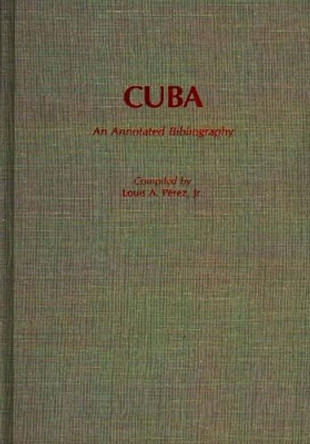Description
This book examines the early years of the Cuban Republic, launched in 1902 after the war with Spain. Although no longer a colony, the country was still hobbled by continuing dependence on and exploitation from a foreign power. Pérez shows how U.S. armed intervention in Cuba in 1898 and subsequent military occupation revitalized elements of the colonial system that would serve imperialist interests during independence. The concessions of the Platt Amendment in 1903 became the principal instrument for U.S. expansion in Cuba. The U.S. then gained control over resources and markets.
About the Author
Louis A. Perez Jr. is J. Carlyle Sitterson Professor of History at The University of North Carolina at Chapel Hill.
Reviews
This masterly account of Cuba's history during the first third of the twentieth century links the diplomacy of U.S.-Cuban relations to the conequences of those relations for Cuba's internal affairs. . . . Graciously written, cogently argued, richly documented, clear, shrewd, and insightful in its analysis of both political and social history and building on Cuban history from the 1880s to 1902 (although the current work stands by itself), this book confirms Perez as the leading historian of early modern Cuba."" - American Historical Review
""[T]he best study to date of Cuban political history from 1902 to 1934. Perez has added to his already impressive scholarly reputation."" - Hispanic American Historical Review
""[W]e are dedicated to Professor Perez for an eloquent and scholarly probe. His work is penetrating and highly intelligent."" - Journal of American History
Book Information
ISBN 9780822954460
Author Louis A. Perez
Format Paperback
Page Count 432
Imprint University of Pittsburgh Press
Publisher University of Pittsburgh Press








